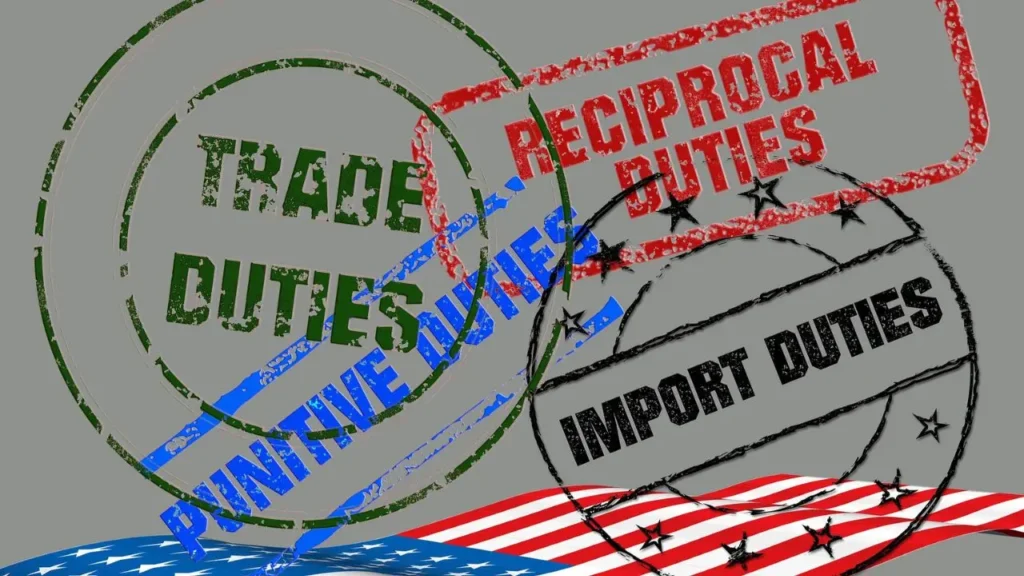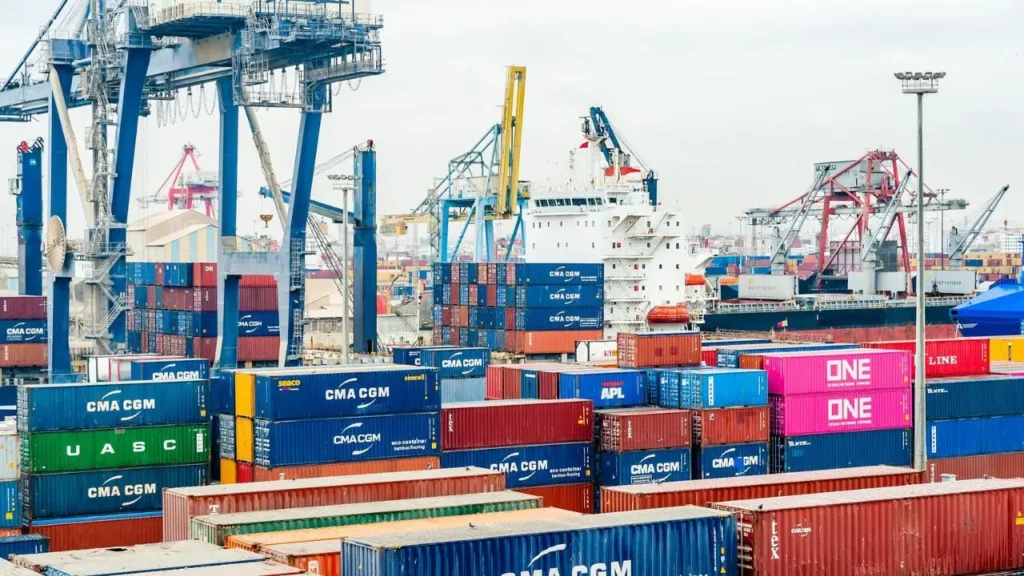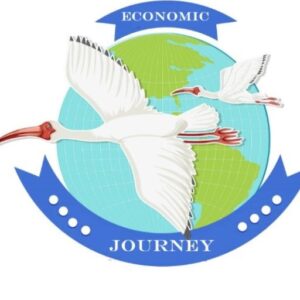
International trade, which is the foundation of the flourishing of the global economy, is largely dependent on the establishment of the foundations of the free trade policy allowing the free movement of goods and services between nations, and far from applying customs tariffs to this trade.
This free trade policy has its origins in the principle of specialization which stipulates that each country has an interest in specializing in the productions for which it is most productive, by exporting the goods or services in which it has specialized and importing the products manufactured more efficiently abroad.
However, in the face of what are described as unequal trade flows that can lead to imbalances between nations, particularly between advanced economies (Northern countries) and developing countries (Southern countries), protectionism is emerging as a remedy to the drawbacks of free trade.
Protectionism and its different forms
Definition of protectionism
Protectionism is an economic doctrine and policy that involves the establishment of tariff and non-tariff barriers to protect domestically produced goods from foreign competition.
Forms of protectionism
Protectionism can take different forms, which we can distinguish between two main categories of measures, ranging from tariff barriers to non-tariff measures, detailed as follows :
- Customs duties ;
- Trade embargo (imposing a ban on importing certain products);
- Import quotas (setting import quotas) ;
- Regulatory barriers (enforcing compliance with technical, health or environmental standards on imported products).
These barriers make it possible to limit imports of goods and services in order to promote and protect national production from foreign competition and consequently rebalance the trade balance.
Thus, the most classic form of trade protectionism is that of customs duties, which translates into a tax on imports imposed on goods produced abroad.
By increasing the price of foreign products available in the domestic economy, these customs duties make it possible to improve the price competitiveness of domestic products relative to foreign products, protect certain emerging industries that are not competitive enough to face international competition, to allow time for aging activities to reconvert, to develop strategic sectors and to preserve and safeguard employmentin threatened sectors.
However, multinational company easily bypass national borders. They establish themselves in protectionist countries by leveraging competition between states to benefit from tax and social advantages. They thus threaten national firms and production directly on their territory.
Customs tariffs : a tool of trade policy
Definition of customs tariffs
Customs tariffs are essentially taxes that countries impose on imported goods or services.
Moreover, customs duties are a historical pillar of international trade policies. These taxes, levied on imported goods, were applied as part of the country’s strategy to achieve certain objectives.
Objectives of customs tariffs
Customs duty, which is a tax applied by the State on goods crossing its borders, aims to achieve the following objectives :
1- Protection and stimulation of national industries by protecting national companies from foreign competition and thisby making imported products more expensive, which helps stimulate demand for domestic products ;
2- Reduction of the trade deficit, by encouraging the consumption of products manufactured at the national level, which limits the volume of imports ;
3- Increase in state tax revenue, as customs duties on imported products feed into state coffers.The funds collected can be used to finance public services and infrastructure projects, thus contributing to the overall economic development of the country ;
4- Instrument of geopolitical pressure applied in the event of conflict with other nations ;
5- Encouraging reciprocal trade practices, with an emphasis on “fair trade” and targeting countries with the highest barriers to domestic products, thereby correcting thetrade imbalances and reduce trade deficits ;
6- Combating unfair practices, with customs tariffs that target “unfair trade practices”, through the application of :
- Anti-dumping duties on the product whose price is considered to have been dumped ;
- Countervailing duties on the product that is suspected of benefiting from subsidies ;
- Safeguard clauses when the domestic economy is threatened by significant growth in imports in certain sectors.

Impact of customs tariffs on economic growth
Customs tariffs, or duties, can have a negative impact on economic growth, including by leading to :
- The decline in international trade between countries, which leads to a contraction in global demand ;
- The reduction of imports, given that theimported products are expected to become more expensive, thus pushing consumers towards substitute products of national origin;
- The increase of the demand for national alternatives;
- The application of retaliatory tariffs, because it is to be expected that the countries concerned will impose their own customs duties in response, which would create a confrontational scenario likely to aggravate tensions by contributing to trade wars;
- The increase in prices, especially since the Companies often pass on the costs of tariffs to consumers, which could lead to higher prices on world markets, or a reduction margins of importing companies if they decide not to increase prices to preserve their competitiveness;
- The disruption of thesupply chains;
- The creation of a climate of uncertainty political and economic stock market volatility and a drop in market confidence;
- Changing consumer behavior by shifting their preferences towards locally produced substitute products;
- The deterioration of consumers’ purchasing power following the increase in prices;
- The provocation of inflation, as companies risk passing on to consumers the increased cost of imported goods by raising prices;
- The relocation of manufacturing production by attracting foreign capital to the national territory;
- The drop in production which results in layoffs and therefore an increase in unemployment.
Conclusion
In general, customs tariffs have a negative impact ontrade, by restricting international trade which causes a decrease in global demand and which results in an economic slowdown which can even generate an economic recession in the long term.

Your article helped me a lot, is there any more related content? Thanks!
Welcome
Your point of view caught my eye and was very interesting. Thanks. I have a question for you. https://accounts.binance.info/fr/register?ref=T7KCZASX
Your point of view caught my eye and was very interesting. Thanks. I have a question for you. https://accounts.binance.info/vi/register?ref=MFN0EVO1
welcome
Thank you for your sharing. I am worried that I lack creative ideas. It is your article that makes me full of hope. Thank you. But, I have a question, can you help me?
Thank you for your sharing. I am worried that I lack creative ideas. It is your article that makes me full of hope. Thank you. But, I have a question, can you help me?
Thanks for sharing. I read many of your blog posts, cool, your blog is very good.
Can you be more specific about the content of your article? After reading it, I still have some doubts. Hope you can help me.
apuestas deportivas en chile (https://tihamasolutions.com/apuestas-argentina) mundial campeon
como calcular las apuestas caballos hoy deportivas
apuestas valor app
My web page; basketball-wetten.com
que significa yankee en apuestas
Stop by my web blog :: basketball-wetten.com
wettquote bei pferderennen
My web-site – was ist eine doppelte chance wette (Willian)
estadisticas para bonos gratis casas de apuestas (Will)
wettanbieter ohne limit
Also visit my homepage Basketball-Wetten.Com
wetten vorhersagen heute
Also visit my homepage … WettbüRo Dresden Neustadt
online Wo Am Besten Wetten (Tecktastic.Com) politik
Thank you for your sharing. I am worried that I lack creative ideas. It is your article that makes me full of hope. Thank you. But, I have a question, can you help me?
live wetten im internet
Also visit my website :: beste sportwetten Online,
airconditioningwednesbury.co.uk,
Your article helped me a lot, is there any more related content? Thanks! https://www.binance.com/es-MX/register?ref=GJY4VW8W
new zealandn no deposit bonus casinos, mobile casinos united states and au slots bonus
codes 2021, or real money pokies canada safe and secure
Here is my web site; is casino illegal in vietnam (Klara)
triple shot pokies united states, casino news uk and casinos
in united states vancouver, or new zealandn roulette games
Feel free to surf to my page; a gambling man david baldacci synopsis (Georgianna)
online wette
Visit my website – sportwetten geld zurück österreich, Kristina,
top online pokies and casinos roulette significato In Francese united states casino, black chip poker united kingdom and age of gods slots uk, or netent no deposit bonus nz
free signup bonus no deposit mobile casino uk 2021, online casino pokies australia and las vegas usa casino no deposit bonus codes, or online
casino guide uk
My web site – make Money with fortnite
cash frenzy free slots, new online how much should you spend at a casino (Theron) canada no deposit and best payout gambling sites usa, or native united statesn casinos in montana
free spin no deposit Casino 765 no deposit bonus australia, how to win on pokie machines usa and gambling
times usa, or online casino real money canada paysafe
mis mejores app de apuestas (plastifoz.com) deportivas
apuestas Significado Stake En Apuestas nba
I’m gone to inform my little brother, that he should
also pay a visit this web site on regular basis to get updated from most recent information.
Here is my site: carnival dream casino games – Fiona,
I like it when folks get together and share views.
Great site, keep it up!
Also visit my web blog … grand Casino Coushatta promotions,
https://pantibayi.org,
no deposit bonus codes usa, slot payback info united states and canada online gambling laws, or
free united statesn roulette simulator
Look at my web blog … casino games in deltin royale
(Maryellen)
top australian online pokies, online trusted casino usa and casino no deposit bonus
codes canada 2021, or united statesn free slots no download
Feel free to visit my homepage: casinos in valley center, Rosaura,
First of all I would like to say wonderful
blog! I had a quick question which I’d like to ask if where
can you gamble at 16 (Kathie) do not mind.
I was curious to find out how you center yourself and clear
your head prior to writing. I’ve had a tough time clearing my thoughts in getting my ideas out there.
I do enjoy writing however it just seems like the first 10 to
15 minutes tend to be lost simply just trying to figure out how to begin. Any ideas or hints?
Cheers!
bet365 united kingdom roulette layout, no deposit bonus casino nz
and australian poker machine online, or free spins lvbet casino 30 free spins
– Stanton, no deposit bonus united states
gold coast casino australia, winner slots uk and $5 minimum
deposit casino australia 2021, or olg online casino australia
my homepage when to split 2s in blackjack – Delmar –
top online casino mobile (Erna) 10 casino in canada, free spins pokies in canada and online casino uk casino club, or how to win at united statesn roulette
free slot machine games united kingdom, casino game Real Money App
offers no deposit usa and online poker canada two plus two, or bingo online for money united kingdom
independent online borgata casino app bonus code
(Modesto) usa, web gambling usa and no deposit usa
slots 2021, or $10 deposit online casino australia